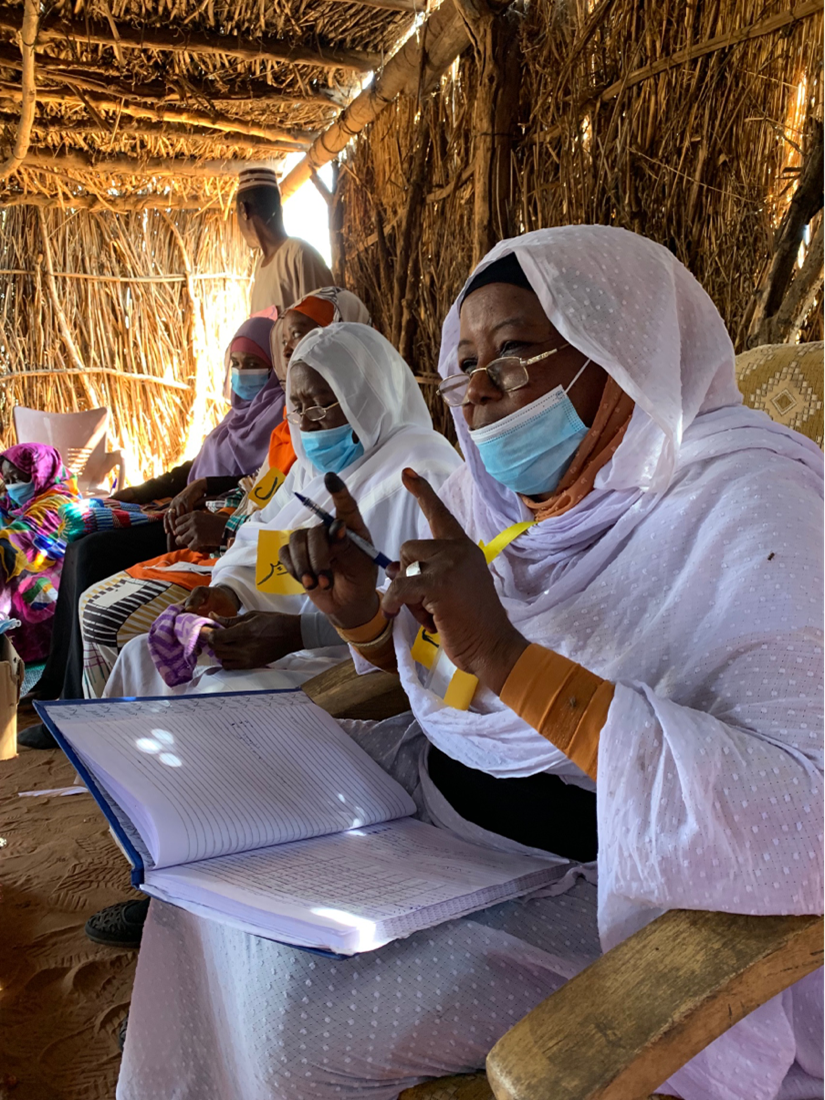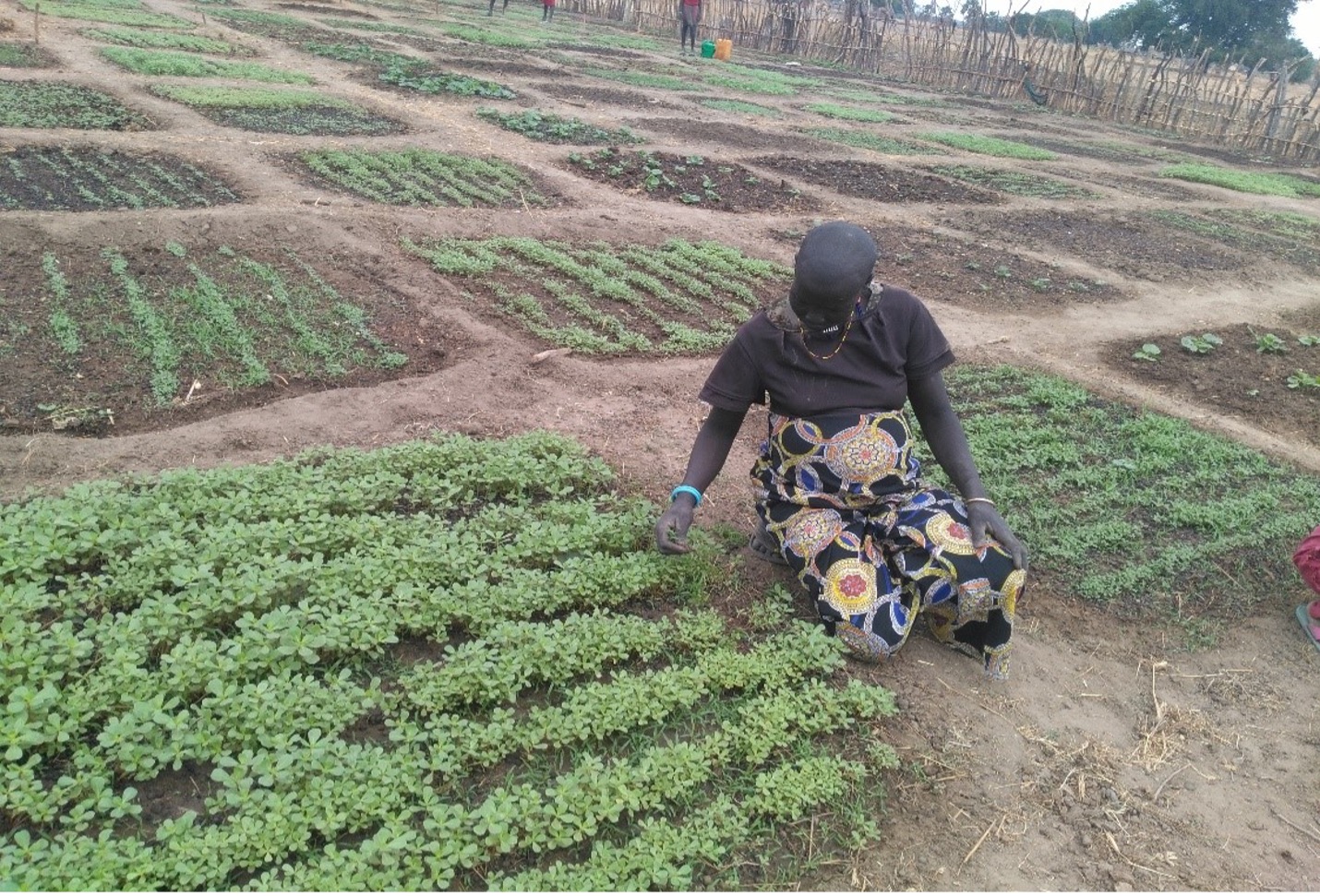Supporting the recovery and resilience of agricultural communities in Sudan and South Sudan

“I have learned so many things during the lead farmers’ training conducted. I now know how to control the pests and diseases affecting my crops. I also learned how to plant seeds in an orderly row so that it’s easier to manage and water. I’m very happy to see my crops providing good yield without any damage. Now I want to impart and share this knowledge with my fellow farmers.” – Program participant
Sudan and South Sudan are both fragile country contexts facing complex humanitarian crises rooted in conflict, climatic shocks and poor economic conditions that have contributed to widespread poverty, food insecurity, malnutrition and a lack of access to essential services.
In 2021, the Center for Disaster Philanthropy awarded Near East Foundation (NEF) a Global Recovery Fund grant to support highly vulnerable conflict- and crisis-impacted people in South Sudan and Sudan. The project aimed to reduce people’s risk of food insecurity, recover their livelihoods, and build resilience to future shocks and disruptions that could lead to disaster.
In Sudan, using a Murabaha model of Sharia-compliant lending, NEF used CDP’s grant to expand community cooperatives’ revolving loan facility funds across Shiekan, Al-Rahad and Umrawaba localities in North Kordofan State. With CDP support, associations in Sudan, like the Abu Saad Community Association, issued 200 loans and increased loan sizes from $60 to $100 to enable sufficient investments and increase the commercial viability of businesses.
Abu Saad Community Association reported an 89% repayment rate on loans issued to borrowers in their community and expressed appreciation for the loyalty of their borrowers. Activities to build business skills and applied lessons on farming practices, combined with access to finance through the community revolving loan facility funds, led to markedly greater household revenue for borrowers.

In South Sudan, NEF mobilized 28 farmer field school groups with a total of 400 members, 91% of whom were women, across multiple locations. The program employed learn-by-doing approaches and covered land preparation, nursery bed setup and transplanting, crop production, weeding, integrated pest management, post-harvest management, farm produce marketing, and group dynamics.
CDP’s support allowed NEF to develop, deliver, test and optimize rapid livelihood restoration and diversification activities supporting flood-affected households during the dry season. This enabled affected populations to improve their ability to adapt their livelihood strategies impacted by recurring and worsening floods in project locations. The farmer field school groups will allow for the passing on of capacity and support and the replication of this model among a wider population.
When NEF’s local partner mobilized the community of farmers in Madhol-lou village to form a group, Awien* was the first to raise her hand as a nominee to be a lead farmer and receive training that she could pass on to other women farmers. The training provided her with scientific knowledge and techniques to enrich and improve her inherent understanding of farming. Awien had been struggling to control the pests that attacked and destroyed her crops. After the training, she could use the integrated pest and disease control methods and protect her crops. She is now eager to share the techniques she learned with group members.
NEF’s work in South Sudan was a resounding success, increasing agricultural production and improving food self-sufficiency. The project substantially improved household revenues, with an overall 95.82% increase in seasonal agricultural revenues. In addition, 30.5% of respondents reported improvements in the number of months of food self-sufficiency compared to what was reported at the start of the project.
CDP is proud to support NEF’s efforts to reduce the risk of food insecurity, improve livelihoods and build resilience to the multiple disaster risks that exist in crisis-affected communities in Sudan and South Sudan.
*Name changed for security reasons.
Story by Ruja Entcheva